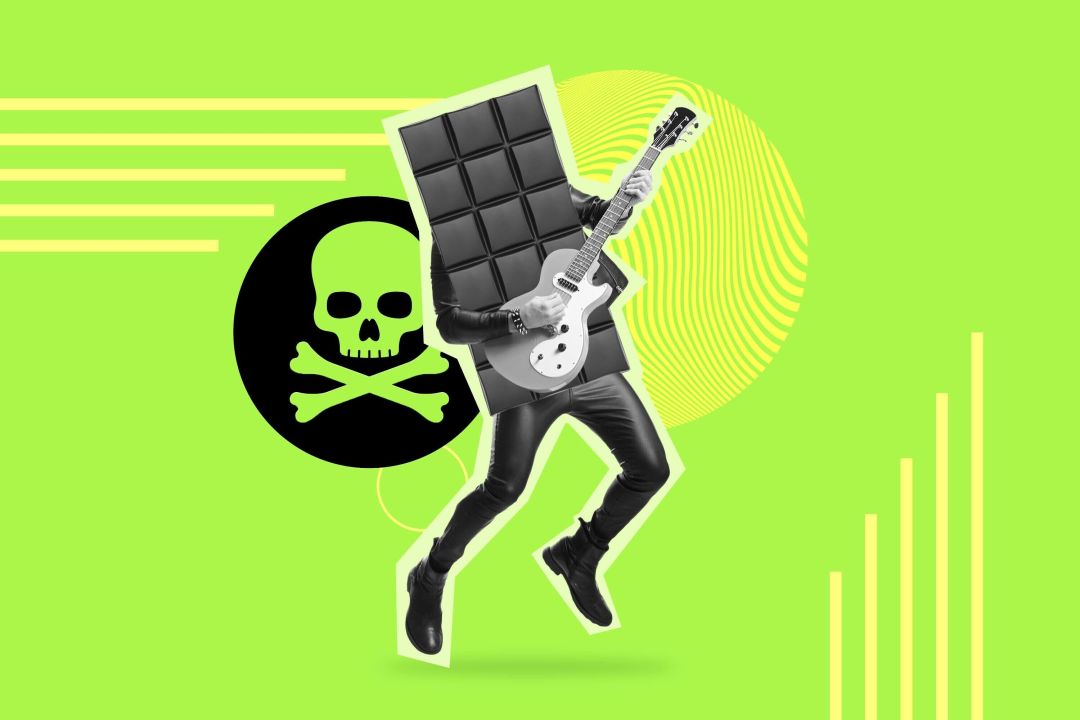Are There Harmful Metals in Our Chocolate?

Think twice before giving a heart-shaped box of chocolates to your loved ones this Valentine's Day.
Aw, your sweet, thoughtful partner bought you chocolates for Valentine’s Day. They love you! Right?
Maybe not. Recent reports have revealed high levels of heavy metals in many of our favorite dark chocolates.
Lead and cadmium, metals with serious negative effects on our health, were discovered at concerning levels in a recent Consumer Reports study. Of the 28 different dark chocolate bars measured, lead or cadmium or both were detected in all of them.
Long-term exposure to lead and cadmium can lead to lots of health problems. They negatively impact the nervous system, cause kidney damage and depress immune system function—and they're especially dangerous for reproductive health. Pregnant women and the developing brains of young children are particularly susceptible to the risks of metal exposure. A 2010 study claimed that nearly a third of breast cancer cases in the U.S. might be the result of high levels of cadmium.
“It’s not brand-spanking-new information to us,” says Michelle James, the clinical operations manager at Sarasota Memorial Hospital. “Concerns regarding metals like lead have been around for hundreds of years.”
James thinks that our expectations of certain foods that have been marketed to us as healthy is what makes this information so disappointing.
“Cadmium, unfortunately, is everywhere,” she says. “It’s in our water. It’s in the air. It gets into the soil and the plants that we eat absorb it.” It’s just especially disappointing that it’s in something like dark chocolate. “They told us to eat dark chocolate!" James says. "It tastes good and it’s good for you! But not if its laced with a whole bunch of contaminants.”
Dark chocolate is rich in antioxidants called flavanols, which have been shown to improve the vascular system, help fight inflammation and reduce cholesterol. The flavanols are found mostly in the fatty part of the cocoa. Trouble is, that’s also where most of the lead and cadmium are.
The metals accumulate in soil and are absorbed by cacao trees. While cadmium is a naturally occurring metal, humans have added considerably more it to the earth. Studies have linked cadmium contamination to excessive use of phosphate fertilizers.
The lead found in chocolate is a result of the way the cacao beans are harvested and handled. While the beans dry in the sun, lead-filled dust can settle on the exposed commodity. The good news is that, with proper harvesting practices, significant amounts of these metals can be removed from the final product. Some regions have safer practices than others.
“It’s a good idea to see the source of where your food is coming from,” James says. “But how does a person know everything?”
Consumer Reports listed five chocolate bars with “safer” levels of metals in its report, but not all hope is lost. Studies have shown that you can fight the absorption of lead and cadmium with a proper diet of micronutrients. Researchers found that consuming plants like kale inhibits the uptake of metals, thanks to the fiber and phytates found in leafy greens. Researchers also found that people with higher concentrations of iron, zinc and calcium in their bodies absorbed less cadmium, as well.
But it’s also important to remember—and this is going to bum you out even more when you try to enjoy those chocolates from your significant other—that it’s not just your health that is negatively impacted by toxic chocolate. The farmers who grow and harvest the cacao are also exposed to these metals. Two-thirds of the world’s cocoa supply comes from West Africa, where the slave labor of more than 2 million children is used to harvest cocoa.
Organizations like As You Sow are working toward holding chocolate companies accountable for the contents of their products. But until then, let your partner know that if they really love you, they'll do some research before giving you that box of chocolate.



